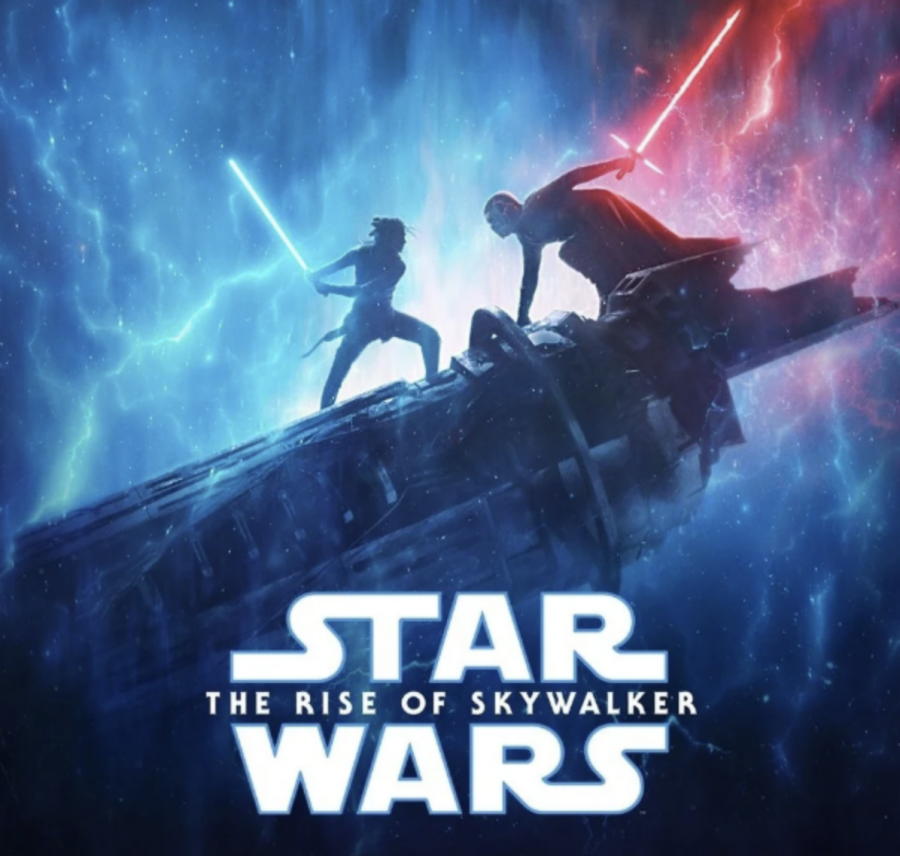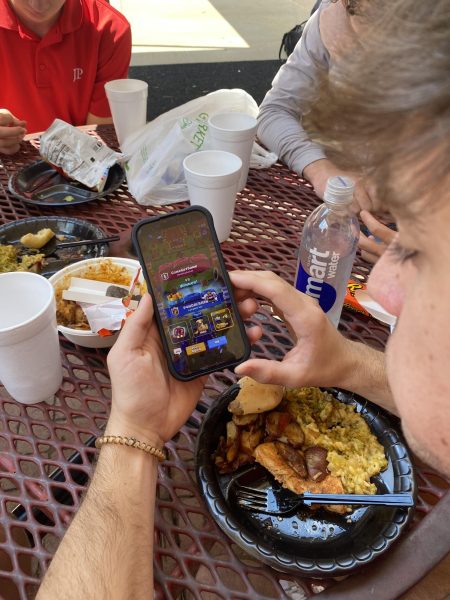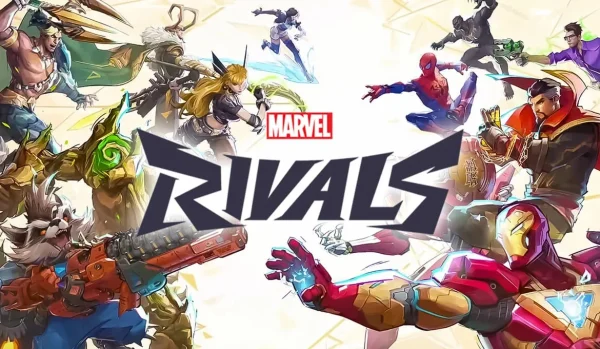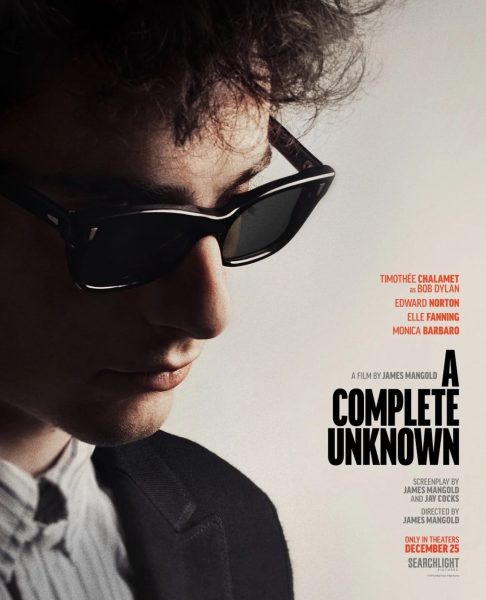The Rise of Skywalker or the fall of Disney’s Star Wars?
From Issue 7
*Review contains spoilers*
Star Wars: The Rise of Skywalker, the highly anticipated conclusion to Disney’s Star Wars trilogy, premiered on December 20, 2019, receiving mixed reviews from audiences around the world.
I suppose I should start with the positives, of which, unfortunately, there were few. I was pleased that my favorite aspect of the Star Wars films, the music, was still top notch. John Williams is a musical genius, and his scores always create the perfect atmosphere. Whether building tension, foreshadowing a romance, or underscoring the reunion of friends, Williams masterfully utilizes all sections of the orchestra and sometimes operatic elements to clue the viewer in to a scene’s tone. I have long been a fan of Williams, and he did not disappoint in The Rise of Skywalker. Throughout the film, themes from the original trilogy intertwine with the themes of new characters, a reminder of where the story of a galaxy far far away began and where it has now ended. Though no piece could ever top “Duel of the Fates” or the original “The Imperial March,” Williams still crafted a dynamic score that captured the drama and wonder of a Star Wars space adventure and was responsible for any ounce of emotion I felt while viewing The Rise of Skywalker.
The Millennium Falcon has always found a special place in my heart, so I was pleased that she was still an integral part of the film, if the quest for the Sith wayfinder did take up far too much of the run time, which brings me to my first problem with The Rise of Skywalker: the quest for a magical item requiring our heroes to planet hop in search of various clues to their goal’s location resulted in a video game-like feel. The plot felt contrived, and too many elements were the result of sheer chance: the appearance of Lando Calrisian, the finding of the knife that lead to the wayfinder, the death star—battered by monstrous waves—remaining in the correct alignment for finding the wayfinder to be possible, and many other seemingly random occurrences.
Our crew of intrepid young fighters visited so many planets, and, while I enjoy the expansion of the Star Wars universe as much as anyone else, I barely had time to process where they were and with whom they were interacting before a threat forced them to move on. This did contribute to some tension in the film, as the threat of Kylo Ren or other troops from the First Order suddenly appearing constantly loomed over the principle characters; but the actions felt forced and rushed, resulting in tension that felt unnatural.
One of the characters I had been excited to see more of in this new trilogy was Finn, and I can say with complete certainty that I am sorely disappointed in the decisions made for his character. The story of a stormtrooper turned rebel was interesting to say the least and had the potential to be one of the most captivating and compelling aspects of the Disney trilogy. However, with The Rise of Skywalker, it became apparent that screenplay authors J.J. Abrams and Chris Terrio did not know how to craft Finn’s character into the larger narrative. Relegated to virtually a sidekick position, Finn could frequently be spotted running or dramatically shouting Rey’s name. Finn’s character could have drastically altered how we view an integral but often overlooked part of the Star Wars universe, the stormtroopers. Would Abrams dynamically position Finn to force us to question the seemingly identical, often inaccurate, faceless soldiers of the Empire…excuse me…the First Order? Initially, yes, but as the Disney trilogy reached its conclusion, Finn’s character took a back seat. While he did meet a group of other defectors on the planet Kef Bir, where he, Rey, and Poe found the ruins of the death star, the interactions again felt contrived and rushed. All said, I think the Disney trilogy did Finn a great disservice and did not explore all possible aspects or implications of his character.
Speaking of character development, let’s talk about Kylo Ren/Ben Solo and Rey Palpatine. Personally, I found their dynamic interesting enough, until they spontaneously kissed after Ben heals Rey, shortly before Ben dies. The kiss seemed unearned and out of the blue. These two characters had a connection, certainly, but it seemed to be more a “light vs. dark”, they’re intrigued by one another, connection; there did not seem to be any indication that they were romantically interested in the other. Star Wars fans are greatly divided over this narrative point, but I personally come down on the side of “where on earth did that come from?” In order for me to buy into a romance, there has to be sufficient development, and the Disney trilogy didn’t have enough.
Furthermore, I would have liked to have seen more of Ben Solo, but I will give credit where credit is due. I thought Adam Driver did an excellent job communicating the transition from Kylo Ren to Ben Solo with his body language alone. All of the tension seemed to go out of his body when he left behind the mask of Kylo Ren, as if the weight of the dark side and of Palpatine’s influence were no longer pressing down on him. Ben had decided for himself what his purpose would be, and his body language shows the freedom he feels in this choice, which is why I was disappointed Abrams didn’t decide to keep Ben Solo around for a little longer.
Finally, it’s time to address the grey, ghostly, decaying elephant lurking in the corner of the room, Palpatine. No explanation is given for his return other than the passing phrase “secrets only this Sith know.” Abrams needed to provide more concrete information than this in order to convince me that Palpatine had returned, a little less than good-as-new, from being yeeted down a reactor shaft by Darth Vadar.
Additionally, his resurrection thematically undermines Darth Vader/Anakin Skywalker’s sacrifice and redemption in Return of the Jedi. When Vader/Anakin made the choice to save Luke, his son, over serving the Emperor, he finally chose the light over the dark side. Palpatine’s return invalidates Vader’s sacrifice. Yes, Vader still saved Luke, but the moment feels cheaper now, knowing Palpatine isn’t truly dead.
Palpatine’s massive fleet of star destroyers also poses a host of questions: why were the ships underground? Were they fully manned, then placed underground? Were they built underground? If so, why not have a hangar bay door and not risk damaging your ships by dramatically yanking them up through tons of earth? Why can they be rendered inoperative by the destruction of a single exterior weapon?
Palpatine’s abrupt return and “Final Order” exemplify the lack of planning that has plagued Disney’s Star Wars and a disregard for the original trilogy while still trying to capitalize on nostalgia for a profit.
The end of the film, the end of a trilogy, the end of a legacy, was one of the most disappointing parts of the entire experience. As Rey, Poe, and Finn reunited after the final battle, I thought the camera would pan out on the three embracing friends, celebrating this moment of victory, then cut to credits, mirroring the celebration on Endor in Return of the Jedi. I thought such an ending was appropriate, considering many elements of this new trilogy mirror the original. However, I was disappointed. Rey’s decision to bury Luke/Anakin’s lightsaber on Tatooine, a planet both men hated and actively tried to escape, made no narrative or thematic sense, nor did Rey’s taking the Skywalker name. I had liked the idea that anyone could be powerful in the force, the idea that Rey had been nobody but had these incredible powers nonetheless. Yet, The Rise of Skywalker reveals that her powers are actually the result of her heritage, as she is the granddaughter of Palpatine. I hated this decision. Rey should have remained just Rey, not Rey Skywalker, not Rey Palpatine, but a character who had made her own way despite her circumstances and learned to master the dangerous powers with which she was burdened. Such a narrative would have made, in my opinion, a far more inspiring story than Palpatine’s granddaughter, provided the writers were up to the task, which they were not.
I wouldn’t say I hated The Rise of Skywalker. However, I wouldn’t say I loved it either. The excitement of just seeing a Star Wars film on the big screen contributed to much of my enjoyment, the rest of which could be attributed to John Williams’s score. The characters often fell flat, the plot felt contrived, and the conclusion was unsatisfying. I found myself missing Obi Wan Kenobi, Han Solo, and Darth Vader. In short, while a passably enjoyable film, The Rise of Skywalker left me longing to rewatch the original trilogy.








